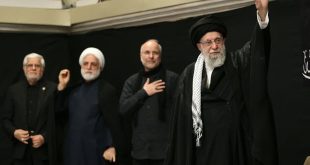The philosophy of the programmeis at Department of Islamic Studies hinged on the convention that in a country where Islam is a way of life for a large proportion of the population, where its study is mandatory for every believer a study of its academic discipline becomes significant.
About
Islamic Studies has been a subject of study for over ten centuries in different parts of Nigeria. Scholars are still working on it with remarkable successes even outside the University settings. The levels of attainment of such establishments and scholars pose challenge and serve as a springboard for the academic study of Islam in the Universities. They also constitute study areas for the undergraduate students in the Universities. Interdisciplinary overlaps do exist between the discipline and others like Arabic, History, Sociology and Anthropology as well as Law. Economics is one recent discipline that has benefited from the cross-fertilization of ideas with Islamic Studies. Nigeria, indeed, is a favourable environment of Islamic Studies with other components of other religions for a degree in Religious Studies.
Philosophy
The philosophy of the programmeis hinged on the convention that in a country where Islam is a way of life for a large proportion of the population, where its study is mandatory for every believer a study of its academic discipline becomes significant. A high level of competence in it becomes desirable as it is seriously needed by the Nigerian society.
Islamic primary sources are in Arabic. This explained why proficiency in the language is crucial to the proper understanding and competence in the Islamic Studies discipline. Students should be able to read and digest the primary sources of Islamic Studies, which are the Qur’an, the Hadith and the Fiqh as they are in the source language.
Proficiency in English is crucial for the purpose of participating in the modern trends in Islam which are usually advanced studies in secondary European sources. A Nigerian graduate of Islamic Studies is one who is capable of obtaining knowledge from the source material and the one who can impart it and marshal arguments in a world language.
Objectives:
The aims and objectives of the Bachelor of Art Degree in Islamic Studies shall be:
- To acquaint the student with the broad outlines of Islam as a religion and as a way of life;
- To prepare the students to understand Islam as a culture and civilization;
- To present Islam to the student as it is in its original sources of the prophets, particularly the Qur’an and Sunnah;
- To sustain rigorous academic research into all issues affecting contemporary Muslim communities with focus on Nigeria;
- To place Islam in the context of other world religious traditions, especially those that are relevant to Nigeria;
- To prepare the student who will progress to postgraduate level towards intellectual capabilities and imaginative thoughts; and
- To produce graduates that would adequately fit into establishments of administration, Islamic legal Departments, teaching at various levels, and the foreign services.
Admission and Graduation Requirements
- 4-Year or Eight-Semester Degree programme.
The Senior Secondary Certificate (WAEC/NECO), GCE Ordinary level and other recognized equivalents with a minimum of five credit passes including Islamic Studies and English Language.
- 3-Year or Six-Semester Degree programme
- Two passes at the General Certificate of Education (GCE) Advanced level or its equivalents with credit passes in three other subjects at the ordinary level or equivalent including English language. One of the Advance level subjects should be Islamic Studies.
- Two passes at the IJMB examination or the equivalent including Islamic Studies with ordinary level or the equivalent including English language
- Any other relevant two-year post secondary Diploma recognised by the Senate of the University.
Students without ordinary level in Arabic language should register for a non-credit compulsory basic Arabic. No student will be allowed to proceed to 200 level without having passed the basic Arabic course.
Contact the Department
Address: P.M.B. 2134, Near Airport, Birnin Kebbi Road, Sokoto State – Nigeria.
Phone: +234 903 037 8374
info@ssu.edu.ng
 Ijtihad Network Being Wise and Faithful Muslim in the Contemporary World
Ijtihad Network Being Wise and Faithful Muslim in the Contemporary World
